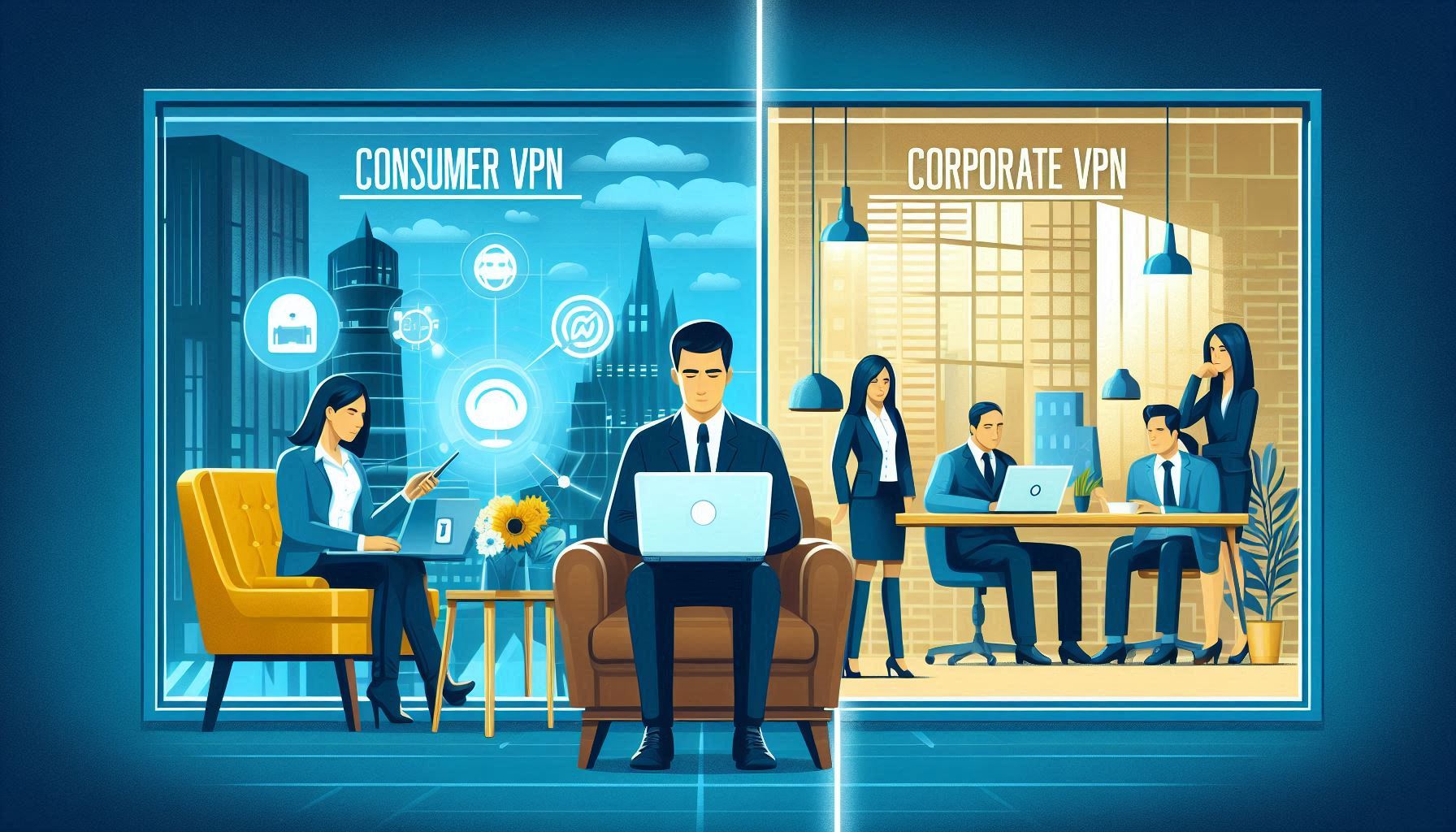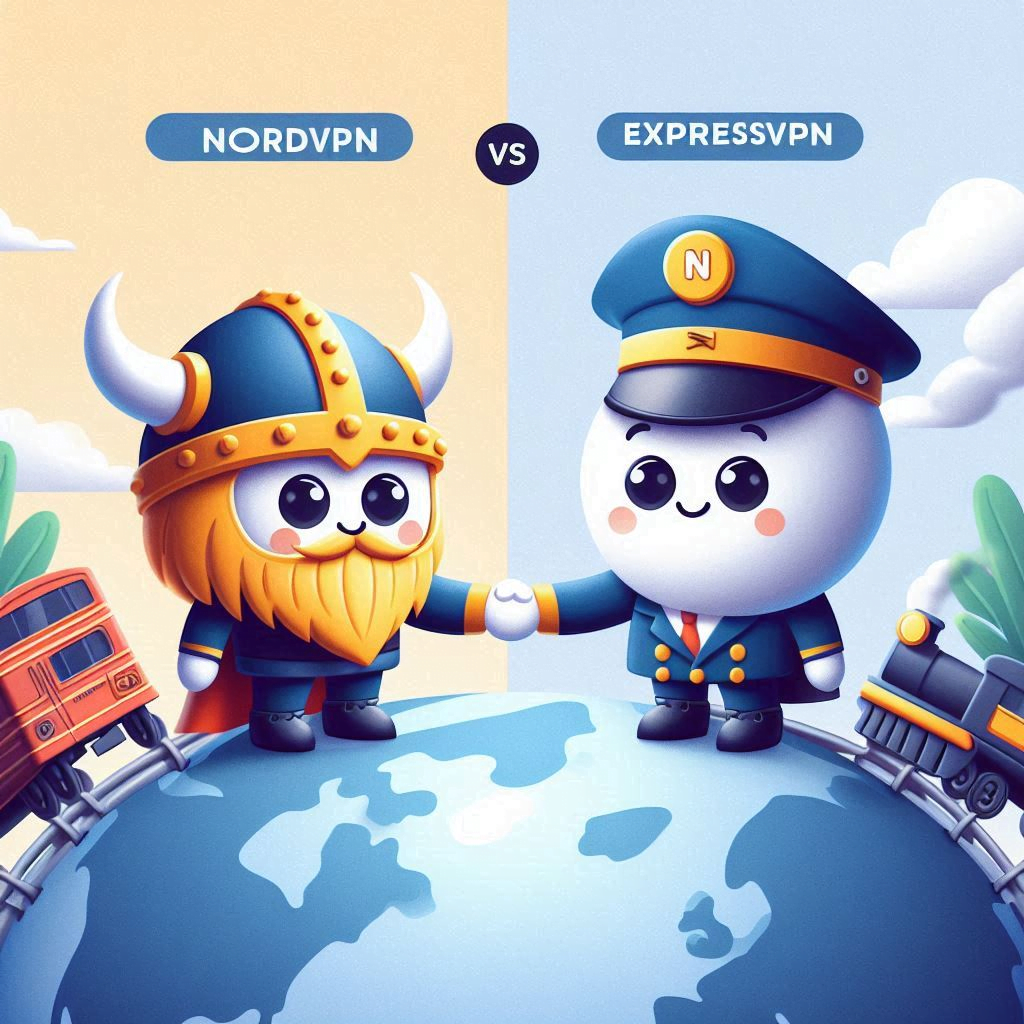What are the differences between consumer VPNs and corporate VPNs?

When looking at VPNs from the surface it appears they have identical purposes since they provide anonymity and secure internet access. Internet security needs of commercial as well as personal users require different designs between corporate VPNs and consumer VPNs. Although VPNs and IP address hide systems share the basic function of encryption and IP concealment they operate with completely different features and applications.
The comparison reveals unique features among VPNs that you will need to select depending on your needs.
Purpose and Primary Use
| Feature | Consumer VPN | Corporate VPN |
|---|---|---|
| Target Users | Individuals | Businesses and employees |
| Main Purpose | Online privacy, unblock content, anonymity | Secure remote access to internal networks |
| Use Case | Streaming, browsing, torrenting, security | Access to private servers, internal apps, data |
A consumer VPN serves the needs of personal clients. This service serves individual users both for international Netflix streaming and anonymous torrenting practices.
The structure of Corporate VPNs enables workers to securely access their workplace internal systems which include servers as well as databases and software specifically when they operate remotely.
VPN solutions both provide secure access and serve to protect vital corporate data from unauthorized access and data breaches.
Authentication and Access Control
Most consumer VPNs request login access with only username and password credentials. When you enter your information the VPN system begins to protect your traffic through encryption methods.
The authentication requirements of Corporate VPNs extend well beyond what consumer VPNs need to maintain. The security features in these setups merge MFA protocols with device confirmation standards and SSL certificate requirements. ZTNA implements zero-trust network access by default discriminating against all users including internal network employees.
The advanced security framework enables authorized personnel to reach limited internal resources while stopping unapproved teams from connecting.
✅ According to IBM Security, 82% of breaches involve human error – which is why corporate VPNs prioritize strong authentication layers.
Server Locations and Network Infrastructure
| Feature | Consumer VPN | Corporate VPN |
|---|---|---|
| Server Locations | Global (over 60–100+ countries) | Limited to company-owned or cloud servers |
| Server Management | Managed by VPN provider | Managed by company IT/security teams |
| Infrastructure Focus | Speed, variety, unblocking content | Stability, control, private server access |
Consumer VPNs maintain a worldwide server network specifically designed for quick connections and unblocking services across territories.
The purpose of Corporate VPNs does not require multiple server locations like consumer VPNs do. Corporate VPNs operate with their servers based on internal infrastructure together with cloud-hosting systems in just a single region or two. Their goal is sustained confidential access instead of trying to circumvent blocked regions.
Encryption and Security Protocols
The encryption feature exists in both consumer and corporate VPNs yet their control systems and deployment methods show substantial variations.
The cryptographic methods employed by consumer VPNs consist of standardized protocols OpenVPN, WireGuard and IKEv2. The pre-made VPN setups have optimized configurations that deliver quick performance alongside simple operation. User interaction with the VPN security solution requires minimal adjustments since the setup provides automatic functionality.
Corporate VPNs go deeper. The implementation of encryption protocols in addition to IPsec tunnels and split tunneling features comes under the control of IT teams during VPN customization. Security solutions for corporations may integrate two security features: deep packet inspection (DPI) together with endpoint monitoring capabilities.
🔒 A 2024 report by Palo Alto Networks found that 68% of corporate VPN setups now use advanced encryption combined with endpoint threat detection.
This customization gives enterprises tighter control over what happens on their network and how their data is protected – something not usually offered in consumer-grade services.
Cost and Licensing
| Feature | Consumer VPN | Corporate VPN |
|---|---|---|
| Pricing Model | Monthly or yearly per user | Per user/device or custom enterprise plan |
| Average Cost | $5–$12/month per user | $10–$20+/month per user (or enterprise quote) |
| Included Support | Basic or live chat support | Dedicated account managers, 24/7 IT support |
Consumer VPNs remain affordable because they serve a wide general market segment. The market for consumer VPNs frequently uses promotions together with lifetime offers and discount deals.
Corporate VPNs offer more expensive costs which provide advanced features together with service-level agreements (SLAs) and dedicated support possibilities. The price companies pay to VPN providers depends on how many employees they have and what their integration requirements are.
User Management and Monitoring
The main purpose of consumer VPNs is to offer privacy protections since they operate without recording any user activity or inspecting online activities. A Consumer Virtual Private Network serves users who need untracked Internet usage and full privacy protection.
The design principle of Corporate VPNs operates in direct opposition to all standard operating factors of consumer access points. Customers require allowing businesses to track their network activities to protect themselves from vulnerabilities and implement access control measures.
Here’s what corporate VPNs often include:
- User activity logs (within company policy boundaries)
- Device management (to track if a device is compromised)
- Access permissions (restricting who can reach which systems)
- Real-time alerts on suspicious behavior
🛡️ According to a Gartner survey, over 74% of organizations monitor VPN activity to prevent insider threats and ensure compliance.
Employee privacy still exists while work environment security and accountability functions as the main priority.
Performance and Speed Priorities
| Feature | Consumer VPN | Corporate VPN |
|---|---|---|
| Speed Optimization | High-speed streaming & gaming | Stable, consistent connectivity |
| Bandwidth Limits | Unlimited (in most premium plans) | Often controlled per user or department |
| Traffic Prioritization | Focus on P2P, streaming, etc. | Focus on file transfers, remote desktop, etc. |
Consumer VPNs exist to support streaming of 4K content and file sharing and online gaming activities. These VPN services dedicate themselves to minimize latency while maintaining rapid connections.
Through their VPN configuration corporate networks guarantee system access even if it affects the speed performance. Fast speed should not be the central objective because stable secure connection remains the top priority.
Customization and Integration
Consumer VPN users possess only basic options to customize their setting which includes switching servers, selecting protocols and enabling kill switches. The goal is simplicity.
Corporate VPNs exist to establish integration between organizational networks and IT infrastructure systems. They can be configured to:
- Work with Active Directory (AD) or LDAP for employee authentication
- Integrate with cloud platforms like AWS, Azure, or Google Cloud
- Support custom firewall rules, endpoint protection, and SIEM tools
- Automate access based on user role, location, or device security
🧩 In a 2023 report by Cisco, 61% of large organizations required VPNs that integrated with at least 3 other IT tools.
Large digital systems need essential network integration because system downtime in seconds impacts both business productivity and financial gains.
Privacy vs. Control
This is where the core philosophy of each VPN type becomes most obvious.
- Consumer VPNs prioritize privacy and anonymity. They are ideal for users who don’t want their ISP, government, or hackers tracking their activity.
- Corporate VPNs prioritize control and management. They’re less about hiding your IP and more about securing internal operations, enforcing policies, and minimizing data exposure.
Remote workers sometimes use their company server through their VPN for protecting company data rather than concealing their activities from the public network.
Conclusion and Key Takeaways
The main function of consumer and corporate VPNs consists of protecting online activity but they offer distinct advantages for separate user groups.
- Consumer VPNs are user-friendly, affordable, and focused on maintaining privacy and anonymity for individuals. They excel at bypassing geo-restrictions, streaming, and torrenting securely.
- Corporate VPNs, on the other hand, are tailored for businesses. They offer higher levels of security, customization, and integration, ensuring that sensitive company data remains protected and that employees can securely access internal resources.
Knowledge about the comparison between VPN types enables people to select appropriate solutions whether they need personal privacy or business network security.
Loading newsletter form...






